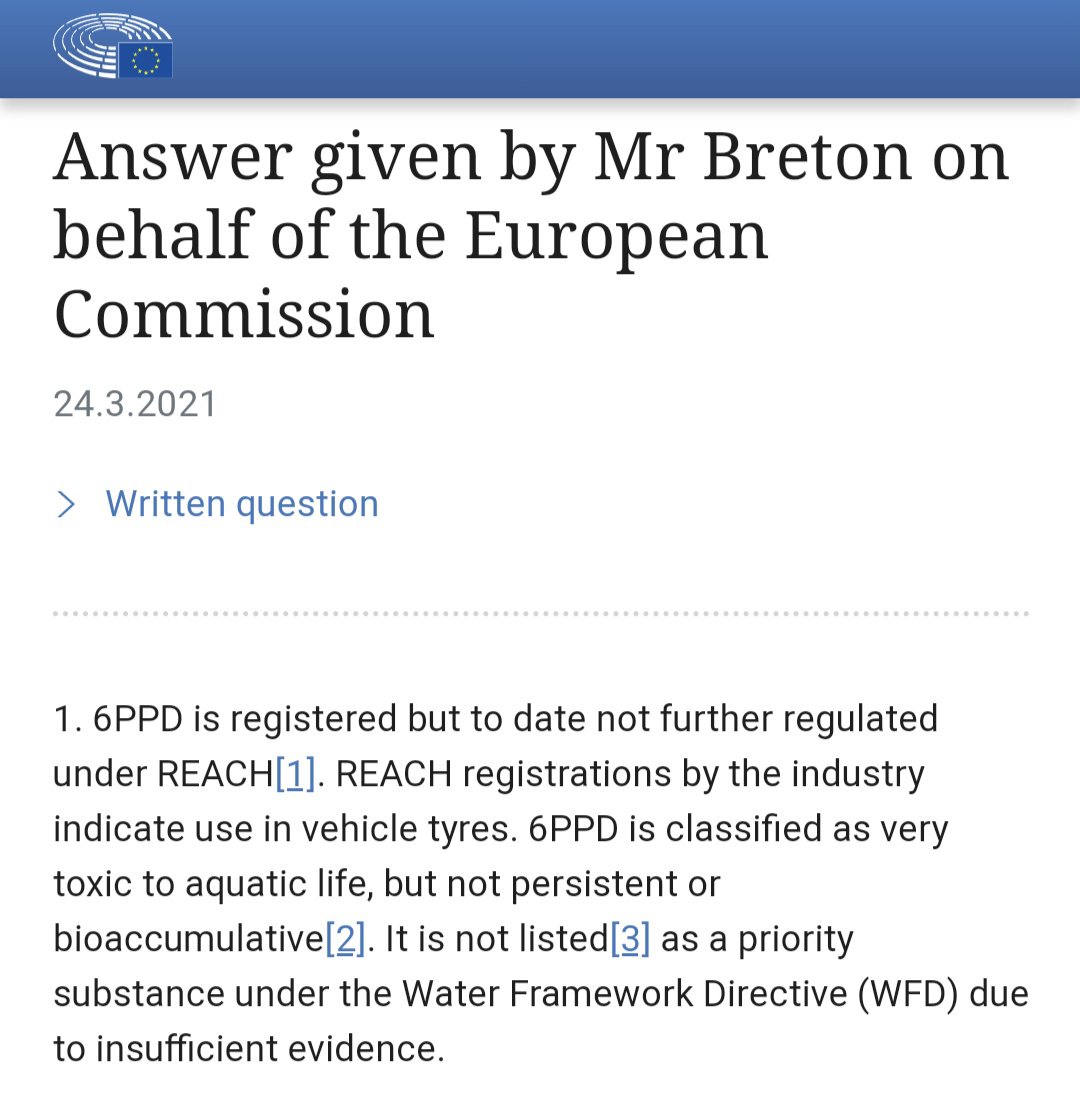In the radio segment, they also mentioned that this chemical might be responsible for many other environmental and human health conditions. This is likely the tip of the iceberg.
In August, three Native tribes — two in Washington, and one in California — petitioned the EPA to regulate the use of 6PPD in tire manufacturing.
6PPD has been in use for decades as a bonding agent to prevent cracking and general wear and tear in tires. When the surface of the tire reacts with ozone or oxygen, it turns into a new compound called 6PPD-Quinone.
“6PPD-Q, which we’ve now discovered, is the second most toxic chemical ever evaluated to aquatic life,” said Elizabeth Forsyth, senior attorney with Earthjustice’s Biodiversity Defense Program, who worked on the petition.
The primary result of exposure is called urban runoff mortality syndrome, which kills up to 100% of coho salmon returning to streams in an urban watershed.
The Port Gamble S’Klallam Tribe, Puyallup Tribe, and Yurok Tribe in California signed onto the petition asking the EPA to regulate the use of 6PPD in tire manufacturing. Proponents hope regulation will push tire manufacturers to develop alternatives to 6PPD. A letter of resolution for support was also signed by a coalition of 57 Northwest tribes
This week, Earthjustice announced a new lawsuit against tire manufacturers for their use of 6PPD. It was filed by the Pacific Coast Federation of Fishermen’s Association and the Institute for Fisheries Resources.
“A lot of our people are dependent for their livelihoods on the harvesting of salmon,” said Glen Spain, executive director for the Pacific Coast Federation of Fishermen’s Association. “The problem is that a lot of our salmon runs are deeply distressed.”
Spain said that 6PPD-Quinone isn’t the only reason fishing stocks are struggling, but the potency of the chemical for salmon is clearly a contributing cause. In California, salmon fishing has slowed to a halt due to low fish counts.
“The problem is a lot of them don’t survive in the juvenile stage in the egg stage because their eggs are poisoned,” Spain said. “That’s the problem. Not enough of them survive to get out to the ocean to come back for our harvest.”
Soundside reached out to the U.S. Tire Manufacturers Association (USTMA) or a response to the recent petition and lawsuit brought by Earthjustice.
In a media statement, the association emphasized their current work and commitment to working with the EPA on evaluating potential alternatives to 6PPD:
“At present, 6PPD presents a critical and essential use in tires,” the tire association said. "While many potential alternatives are being considered, none has been demonstrated to be technically feasible for meeting federal safety requirements. Any premature prohibition on the use of 6PPD in tires would be detrimental to public safety and the national economy Story from Soundside
This seems like a reasonable regulation from the government. These tire companies failed to self-regulate and innovate to replace these chemicals. This is the push they need to invest in a better process that is a good alternative
These tire companies failed to self-regulate
I mean yeah, no shit. Why do people act so surprised when this happens literally every time. Corporations WILL NEVER self-regulate. The only time they’ll take action themselves if it threatens their bottom line. They’ll often even claim they did it themselves for that reason, when in reality it was ultimately due to a government regulation they need to avoid.
Corporate will not stop until the planet is fucking dead. Those billionaires need their goddamn record quarterly profits!
For those curious if this applies to tires in the EU as well, yes it appears so.
Here is a 2020 question from Margrete Auken to the European Commission:
https://www.europarl.europa.eu/doceo/document/E-9-2020-007042_EN.html
and the answer from the EU Commission:
https://www.europarl.europa.eu/doceo/document/E-9-2020-007042-ASW_EN.html
Thank you for finding that! It looks like it is used in tires in the EU, but there are no current plans to ban it there.






